"Developing more and better industry in proximity is possibly the best solution for everyone"

AutoRevista.- What are the requirements and criteria for the approval of suppliers of the different links in the value chain in this era of transformation towards a more digital and sustainable industry?
A.B.G.V.- For some time now, the requirements of our suppliers have already included the essential conditions of digitalisation and sustainability.
Perhaps what is most important at this time is that instead of the OEM pulling the chain and demanding that its suppliers meet the standards of this industry, more and more suppliers are showing us the improvements they are making in these fields and how this gives them more robustness and flexibility in a market that is constantly evolving.
AR.- How is the relationship between customer and supplier evolving, especially in innovation, to achieve higher and better levels of partnership?
A.B.G.V.- In the case of Renault Group (RG), it is evolving very quickly and effectively. In the last few years, we have entered into far-reaching partnerships with global suppliers and also with small companies that bring a lot of innovation and allow us to develop customised technical options adapted to our needs.
In general, I think all OEMs are looking for our balanced ecosystem resulting from the combination of great historical partners and start-ups, which gives innovation and robustness to our operations.
AR.- Are you working on a dynamic focused on creating critical supplier networks closer to the production centres?
A.B.G.V.- I think this is a generalised trend after what has happened in recent years. We have had to rethink practically everything. Securing our sources of supply, minimising the impact on our carbon footprint and maximising circular economy actions to the maximum.
Indeed, developing a robust industrial ecosystem around our factories is a positive way to seek solutions to the various adversities we have to manage. Doing so by developing more and better industry in proximity is possibly the best solution for everyone.
AR.- In what way are Big Data tools contributing to achieving better levels of efficiency and competitiveness in customer-supplier collaboration?
A.B.G.V.- I believe that many of these concepts help to improve the efficiency of the function, our agility when looking for competitive solutions and interacting with our partners and suppliers. We are able to exchange more complete and detailed information much faster, and visualise the outcome more robustly. Without a doubt, it is a help and an opportunity for transformation and improvement.
AR.- What is the value of the relationship with automotive clusters or other entities that bring together supplier companies of different profiles?
A.B.G.V.- I think it is excellent work that brings a lot to both the companies that form part of these associations and to society as a whole.
The automotive industry represents 10% of Spain's GDP, we are the second largest manufacturer in Europe and yet our sector does not have the visibility it should in this country. These clusters enhance the value of our industry and, on the other hand, help those who want to be part of it to be at the right level, to know the standards and needs of the sector, to learn from the best.
AR.- In the specific case of the Spanish supplier industry, how do you think it should continue to evolve so that Spain remains an attractive country for vehicle manufacturing?
A.B.G.V.- I believe that Spain is currently facing the great challenge of transforming the excellent industrial apparatus we have towards the new mobility.
Being able to maintain our competitiveness is absolutely key, while at the same time providing the products that the car of the future needs: Electronics and connectivity seem to be two fundamental axes.
The use of sustainable materials, minimising the carbon footprint and maximising the possibilities of the circular economy can serve as an example to show other countries that this new mobility is possible.
In Spain we have all this within our reach, but we must believe in it and we must all walk together towards this common goal, from the energy that provides the industry to the energy that serves to charge our cars and batteries, through service companies that maximise a second life for the materials we use or component manufacturers that offer integral and more sustainable solutions.
Lea esta entrevista en castellano
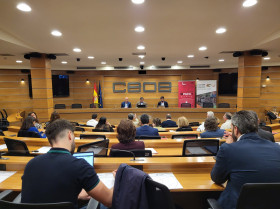
La organización del evento, del 7 al 10 de mayo en Fira de Barcelona, ha detallado el nuevo estudio en Barcelona y Madrid.
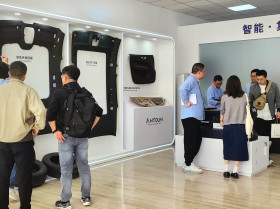
La multinacional española realiza un destacado displiegue en la muestra del 25 de abril al 4 de mayo.
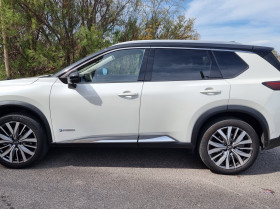
En el fascinante universo de los SUV, el Nissan X-trail emerge como un protagonista indiscutible, fusionando la versatilidad de un crossover con la robustez de un todoterreno. Esta cuarta generación del X-Trail, representa la evolución de un modelo emblemático, cimentado en años de innovación y excelencia. Texto y fotos: Eusebio Albert
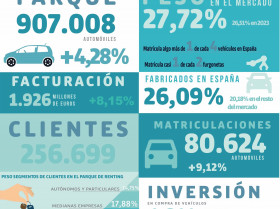
Las grandes empresas (con más de 24 vehículos) son las que más incrementan porcentualmente su parque en renting.
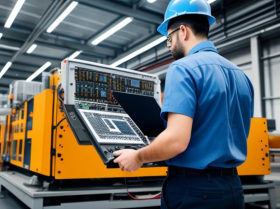
La presentación de candidaturas está abierta hasta el 17 de mayo
